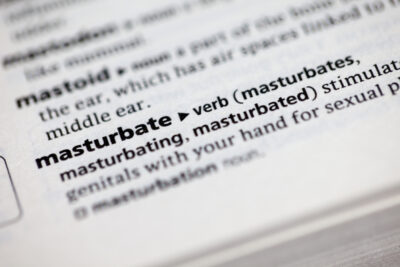Side Effects of Excessive Masturbation in Males
What is Masturbation?
Masturbation is a prevalent practice among individuals of all genders and backgrounds, involving the stimulation of one’s genitals for sexual arousal or pleasure. It is a natural and safe means of exploring one’s body, experiencing pleasure, and releasing accumulated sexual tension. Masturbation plays a vital role in the development of sexual health and is embraced by people from various races and cultural backgrounds.

Benefits of Masturbation
Firstly, it can provide a form of sexual pleasure and satisfaction as it allows individuals to explore their own bodies, learn about their preferences, and experience sexual release. Secondly, masturbation can serve as a stress relief technique as engaging in sexual self-stimulation can help relax the body and release endorphins. Additionally, regular masturbation can contribute to maintaining good sexual health. It helps promote healthy blood flow to the genital area offering a way to keep the sexual organs active and functional. Read in detail about the Benefits of Masturbation.
Side Effects of Masturbation
Physical Side Effects –
1. Overstimulation and desensitization
2. Potential for penile injuries
3. Fatigue and exhaustion
4. Potential impact on sexual performance
Psychological Side Effects –
1. Guilt, shame, and negative emotions
2. Relationship issues and unrealistic expectations
3. Addiction and compulsive behavior
A. Physical Side Effects:
Here are the physical side effects of Masturbation:
- Overstimulation and desensitization – Excessive or overly vigorous masturbation can lead to overstimulation of the nerves in the genital area. This can result in decreased sensitivity over time, making it more difficult to achieve the same level of arousal and pleasure. It may require more intense stimulation or different techniques to achieve the desired level of satisfaction.
- Potential for penile injuries – Intense or aggressive masturbation techniques, such as rough gripping or excessive bending, can potentially cause injuries to the penis. These injuries may include skin irritation, soreness, bruising, or even more severe issues like penile fractures. It is important to be mindful of the pressure and force applied during masturbation to avoid such injuries.
- Fatigue and exhaustion – Engaging in excessive masturbation sessions, particularly in a short period, can lead to physical fatigue and exhaustion. The body may become drained of energy due to the release of hormones and physical exertion. This can result in feelings of lethargy, decreased motivation, and overall physical weakness.
- Potential impact on sexual performance – Some individuals may find that frequent or compulsive masturbation affects their sexual performance with a partner. It is possible to experience difficulties in achieving or maintaining an erection, delayed ejaculation, or reduced sexual desire. This can lead to frustration or performance anxiety, affecting one’s confidence and satisfaction in sexual experiences.
B. Psychological Side Effects
Here are the psychological side effects of Masturbation:
- Guilt, shame, and negative emotions – Certain cultural, religious, or societal beliefs surrounding masturbation can contribute to feelings of guilt, shame, or embarrassment. These negative emotions can arise due to a perceived violation of moral or social norms. Such psychological distress may impact one’s self-esteem, body image, and overall well-being.
- Relationship issues and unrealistic expectations – Excessive focus on and reliance on masturbation as a primary source of sexual gratification may lead to relationship challenges. If one’s sexual needs are primarily fulfilled through masturbation, it can create a disconnect or dissatisfaction with a partner. Additionally, unrealistic expectations about sexual performance or unrealistic fantasies developed through excessive masturbation can make it difficult to establish fulfilling sexual intimacy with a partner.
- Addiction and compulsive behavior – For some individuals, masturbation can become an addictive or compulsive behavior. Excessive and uncontrollable urges to masturbate, accompanied by a loss of control over the frequency and duration of sessions, may indicate a potential addiction. This can negatively impact daily functioning, personal relationships, and overall quality of life. If masturbation starts to interfere with one’s ability to carry out regular activities or responsibilities, seeking professional help is recommended.
It’s important to note that the potential side effects of masturbation can vary from person to person. Not everyone will experience these side effects, and the frequency, intensity, and individual circumstances play a significant role. Maintaining a healthy balance, practicing moderation, and being attentive to one’s own physical and emotional well-being can help mitigate these potential side effects.
Masturbation and Prostate Cancer
The belief that masturbation can protect against prostate cancer has been around for a long time. However, the relationship between masturbation and prostate cancer risk is complex and not fully understood.
Some studies suggest that frequent ejaculation, including through masturbation, may lower the risk of prostate cancer. This theory is based on the idea that regular ejaculation helps remove harmful substances from the prostate gland and reduces the buildup of cancer-causing substances.
Conclusion
The side effects of daily masturbation in males typically arise only when it is done excessively. When practiced in moderation, masturbation can actually be beneficial for one’s health. It offers a multitude of health benefits when approached responsibly.
As long as you feel comfortable and enjoy the experience, there is nothing inherently wrong with engaging in daily masturbation. However, if negative emotions become associated with it or if it starts to interfere with your daily life, seeking professional help is advisable.
